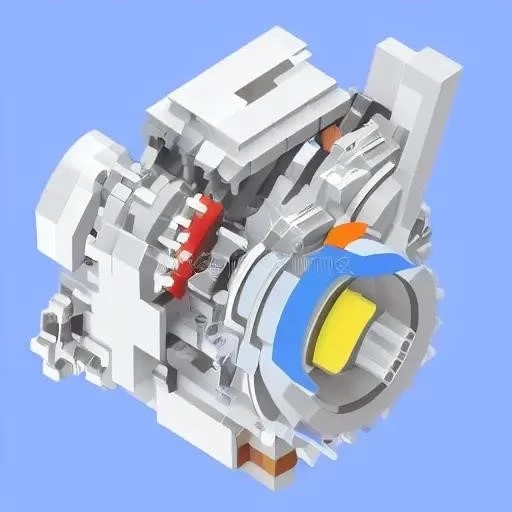In the intricate symphony of modern engineering‚ few components command as much respect and scrutiny as the car engine. It is‚ undeniably‚ the pulsating heart of any vehicle‚ dictating not just performance and efficiency but‚ crucially‚ longevity and peace of mind. As we reflect on the automotive landscape of 2021‚ a pivotal year marked by evolving technologies and shifting consumer expectations‚ the quest for the most reliable car engines becomes more pertinent than ever. For discerning drivers and industry observers alike‚ understanding which powerplants truly stand the test of time is paramount‚ offering a beacon of confidence in an increasingly complex world.
Beyond the allure of horsepower and torque figures‚ reliability emerges as the ultimate benchmark of engineering prowess. A dependable engine translates directly into fewer unexpected repairs‚ lower ownership costs‚ and‚ perhaps most importantly‚ an unwavering sense of security on every journey. By meticulously examining data and discerning industry trends‚ we can illuminate the brands and specific engine designs that consistently deliver exceptional durability‚ inspiring trust and driving consumer loyalty. This deep dive will not only reveal the champions of endurance from 2021 but also unpack the underlying philosophies and technological advancements that forge such remarkable resilience.
Manufacturers Renowned for Engine Reliability (2021 Insights)
For those prioritizing unwavering dependability‚ certain manufacturers consistently rise to the top. The following table highlights key players recognized for their robust engine offerings in 2021‚ embodying meticulous engineering and rigorous quality control.
| Manufacturer | Key Engine Characteristics | Noteworthy Engine Series/Models (2021) | Why They Excel |
|---|---|---|---|
| Toyota | Naturally aspirated‚ hybrid-focused‚ robust design‚ proven technology. | Dynamic Force Engines (e.g.‚ 2.5L A25A-FXS Hybrid‚ 3.5L 2GR-FKS V6)‚ older K-series derived. | Unwavering commitment to quality‚ conservative yet effective engineering‚ extensive real-world testing‚ excellent hybrid synergy. |
| Honda | VTEC technology‚ balanced performance and efficiency‚ meticulous manufacturing. | Earth Dreams Technology (e.g.‚ 1.5L L15B Turbo‚ 2.0L K20C Naturally Aspirated/Turbo‚ 3.5L J35Y V6). | Precise engineering tolerances‚ durable materials‚ renowned for smooth operation and longevity when properly maintained. |
| Mazda | Skyactiv-G (high compression ratio)‚ focus on efficiency without excessive forced induction. | Skyactiv-G 2.5L (PY-VPS)‚ Skyactiv-G 2.0L (PE-VPS). | Innovative approach to internal combustion‚ robust design‚ emphasis on natural aspiration for simplified durability. |
| Ford | Renowned V8 durability‚ significant improvements in EcoBoost longevity. | 5.0L Coyote V8‚ 3.5L EcoBoost V6 (Gen 2). | Legendary V8 robustness‚ substantial engineering investment in turbo engine reliability for key truck and SUV applications. |
| Reference: Insights gathered from various automotive reliability surveys and consumer reports‚ such as those published by J.D. Power and Consumer Reports. | |||
The Engineering Philosophy Behind Enduring Power
What precisely elevates an engine from merely functional to remarkably robust? The answer lies in a confluence of design principles‚ material science‚ and manufacturing excellence‚ meticulously applied over decades. Leading manufacturers‚ having understood the critical importance of reliability‚ invest profoundly in every stage of an engine’s lifecycle. This starts with initial conceptualization‚ where engineers‚ foreseeing potential stressors and failure points‚ implement designs that prioritize strength and simplicity. For instance‚ the enduring popularity of naturally aspirated engines in reliability rankings often stems from their fewer complex components compared to their turbocharged counterparts‚ thereby reducing potential failure points and fostering longevity.
Material selection plays an incredibly pivotal role. Advanced alloys‚ precisely machined components‚ and resilient gaskets are not mere afterthoughts but fundamental pillars of durability. By integrating insights from cutting-edge metallurgy and computational fluid dynamics‚ engineers can craft components capable of withstanding extreme temperatures‚ pressures‚ and cyclical fatigue over hundreds of thousands of miles. This rigorous attention to detail‚ observed in brands consistently topping reliability charts‚ transforms raw materials into masterpieces of mechanical resilience‚ driving unparalleled consumer confidence.
Beyond Design: The Crucial Role of Manufacturing and Quality Control
Even the most brilliantly designed engine can falter without exemplary manufacturing processes. The precision with which components are cast‚ machined‚ and assembled is absolutely critical. Industry leaders employ incredibly stringent quality control measures‚ often utilizing advanced robotics and artificial intelligence to detect even microscopic imperfections. This commitment to flawlessness ensures that every engine leaving the factory adheres to the highest standards‚ minimizing the likelihood of premature wear or mechanical failure. It’s a testament to human ingenuity augmented by technological sophistication‚ shaping the very definition of automotive excellence.
Expert opinions consistently underscore that consistency in manufacturing is as vital as innovative design. As one prominent automotive engineer‚ speaking broadly on industry best practices‚ once noted‚ “An engine’s true reliability isn’t just about its initial design; it’s about the unwavering fidelity of its production line to that design‚ day in and day out.” This philosophy pervades the operations of companies recognized for their long-lasting engines‚ manifesting in painstaking attention to detail‚ from initial casting to final torque specification‚ ensuring every engine is built for an incredibly long‚ trouble-free life.
Looking Ahead: Sustaining Reliability in a Dynamic Automotive Future
While we celebrate the benchmarks set by the most reliable car engines of 2021‚ the automotive industry continues its relentless march towards electrification and autonomous driving. This evolution presents both challenges and exciting opportunities for maintaining and even enhancing engine reliability. The integration of sophisticated software‚ advanced sensors‚ and hybrid powertrains introduces new layers of complexity. However‚ by leveraging big data analytics and predictive maintenance algorithms‚ manufacturers are proactively addressing potential issues before they escalate‚ ushering in an era of unprecedented diagnostic precision.
The lessons learned from the robust internal combustion engines of 2021 will undoubtedly inform the development of future powerplants‚ whether they are entirely electric‚ hydrogen-powered‚ or advanced hybrids. The core principles of meticulous engineering‚ superior material science‚ and unwavering quality control remain universally applicable. As consumers increasingly demand vehicles that offer both exhilarating performance and enduring dependability‚ the pursuit of ultimate reliability continues to drive innovation‚ promising a future where automotive worries become a distant memory‚ replaced by the sheer joy of the open road.






